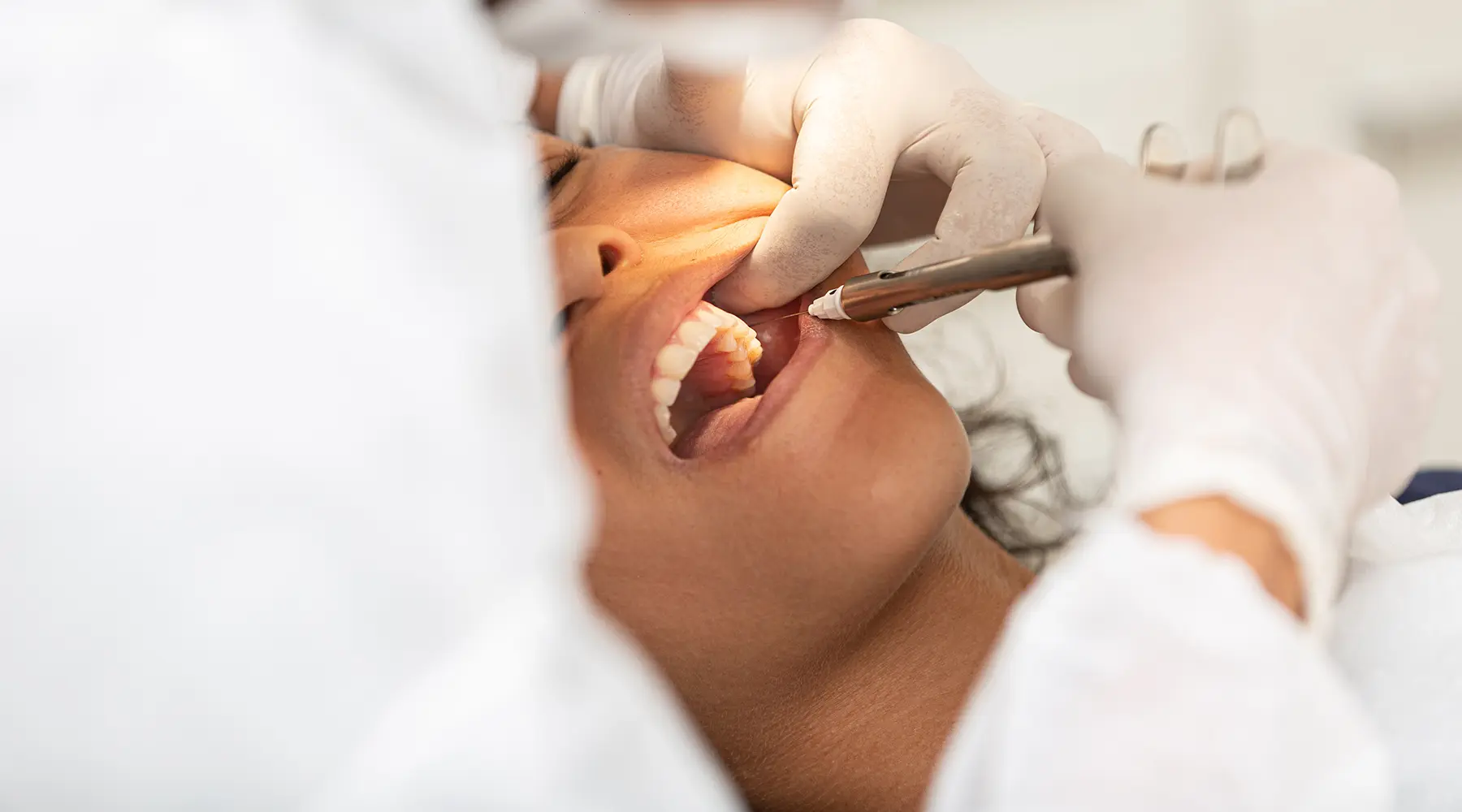Answers to 10 FAQs About Wisdom Teeth
Reviewed By Dr. Tyler N Davis, DMD
Reading Time: 3 minutes
Dentists typically start monitoring wisdom teeth during the late teenage years, around ages 16–19, when they begin to develop beneath the gums. But wisdom teeth (3rd molars) may develop earlier than that, depending on the dental development of the patient.
Regular dental checkups and panoramic X-rays help determine if there’s enough space for them to erupt properly. These images also reveal potential issues, such as impaction, bone loss, or gum tissue concerns.
If wisdom teeth are likely to cause crowding, pain, or damage to adjacent teeth, removal may be recommended.
In this blog, we answer the most common questions about wisdom teeth, from when they appear to whether they always need to be removed.
At Power Road Dental Care, we perform uncomplicated (erupted from the gum line and easily accessible) wisdom tooth removal. If wisdom teeth are impacted, we will refer you to an oral surgeon for removal.
Table of Contents
Does Removing Wisdom Teeth Change Face Shape?
Removing wisdom teeth typically does not change your face shape. The procedure only removes the teeth and does not alter your jawbone or facial structure.
While some patients notice a slight reduction in cheek fullness due to decreased inflammation or muscle tension, this effect is usually temporary. Once healing is complete, your facial appearance should remain the same.
Does Everyone Have Wisdom Teeth?
No, not everyone has wisdom teeth. While most people develop all four, some may have fewer—or none at all.
Wisdom teeth typically start forming in the late teens, and a dental X-ray can confirm how many you have and whether they are likely to cause problems.
Even if wisdom teeth are present, they don’t always need removal unless they remain impacted, cause pain, or affect surrounding teeth, and are impossible to keep clean.
When Do Wisdom Teeth Come In?
Wisdom teeth usually erupt between ages 17 and 25, though the timing varies for each person.
What Happens If You Do Not Remove Wisdom Teeth?
If wisdom teeth are expected to grow in without issues, then nothing will happen if you don’t remove them. However, if they are impacted, partially impacted, or misaligned, they can trap food and bacteria under the gums, increasing the risk of gum disease, tooth decay, and infections.
In some cases, they may press against adjacent teeth, causing damage or shifting. If left untreated, problematic wisdom teeth can lead to pain and more complex dental issues such as tooth loss of adjacent teeth, or future treatment and additional procedures.
Impacted wisdom teeth may require an emergency tooth extraction, learn more here: Signs You Need an Emergency Tooth Extraction.
How Many Wisdom Teeth Do You Have?
Most adults have up to four, but some have fewer or none. Some people even have more than 4!
Why Do We Have Wisdom Teeth?
They were beneficial for our ancestors who ate coarse foods like tough plants requiring extra chewing power. Today, smaller jaw sizes mean there is often not enough room for these third molars.
Can Wisdom Teeth Grow Back?
No, wisdom teeth do not grow back once they are fully removed. However, some people may notice small bone fragments, called bone spicules, emerging as the extraction site heals. Learn more about bone spicules and how to manage them: Understanding and Managing Bone Spicules After Tooth Extraction.
Can Wisdom Teeth Cause Headaches?
Yes, they can cause headaches due to jaw pain or pressure on nearby nerves. An impacted tooth can lead to chronic mouth pain or ear pain.
Does Wisdom Teeth Removal Hurt?
The surgery itself is not painful because anesthesia is used. You will not feel anything during the procedure. Mild to moderate discomfort and swelling are common afterward. Pain is usually manageable with prescribed or over-the-counter pain relievers, ice packs, and rest. Most patients recover within a few days and can resume normal activities shortly after surgery.
What Does It Mean When Wisdom Teeth Are Impacted?
It means they cannot fully emerge/erupt because of limited space or poor angle. Soft tissue impaction, partial impaction, or a complete impaction can put pressure on neighboring teeth. If left untreated, it can lead to complications like gum infection, resorption of healthy adjacent teeth, or nerve damage, making extraction necessary.
Top Dental Care in The Phoenix East Valley – Schedule Your Visit Today!
Wisdom tooth extraction is not as scary as you might think! Many people say the fear of the procedure is much worse than the procedure itself.
If you are concerned about your wisdom teeth or have questions about them, give us a call or book an appointment for a dental checkup/evaluation. If you are in the Phoenix East Valley, book an appointment at our dental office in Mesa, AZ, call (480) 664-1438 or visit us at 2500 South Power Road, Suite 102, Mesa, AZ.

